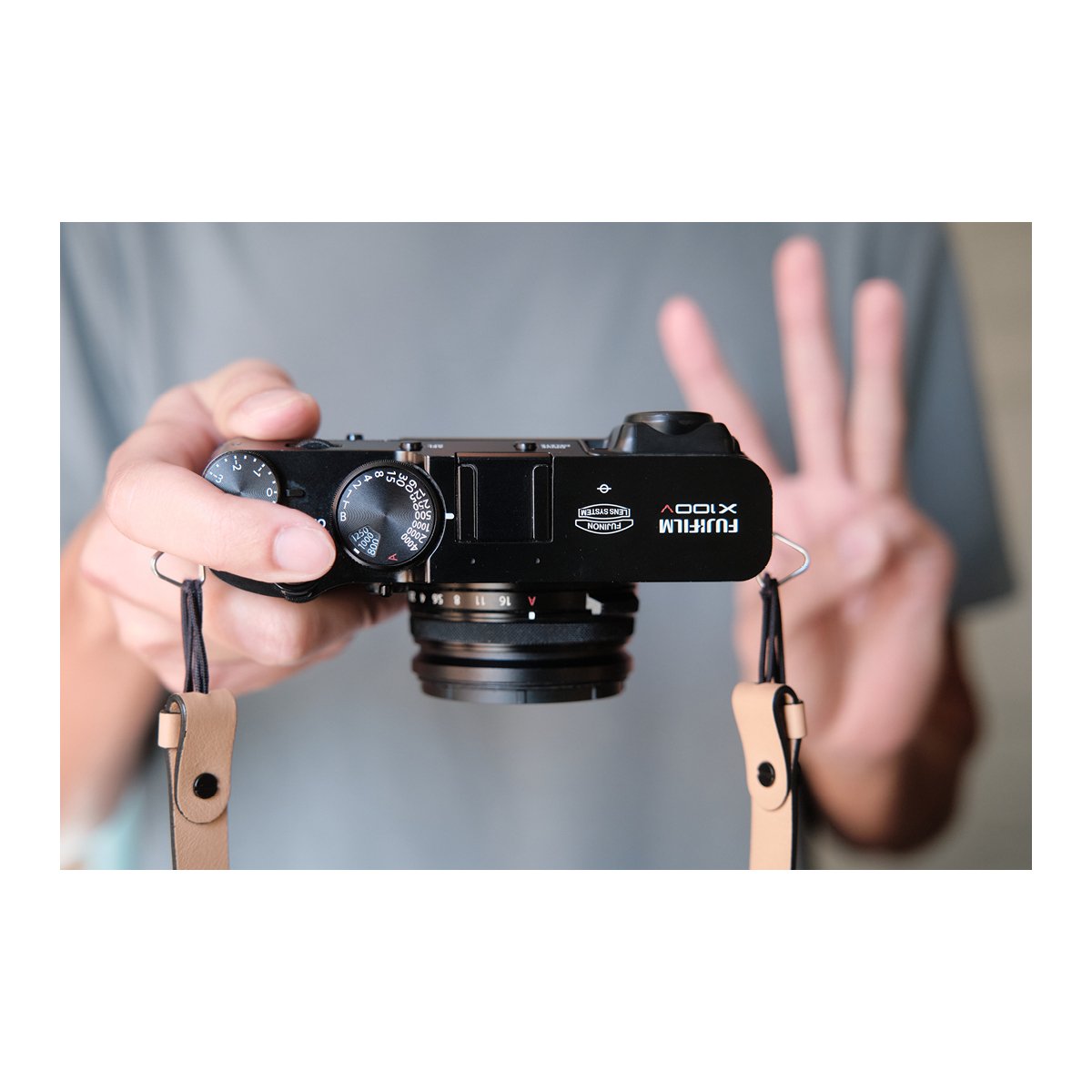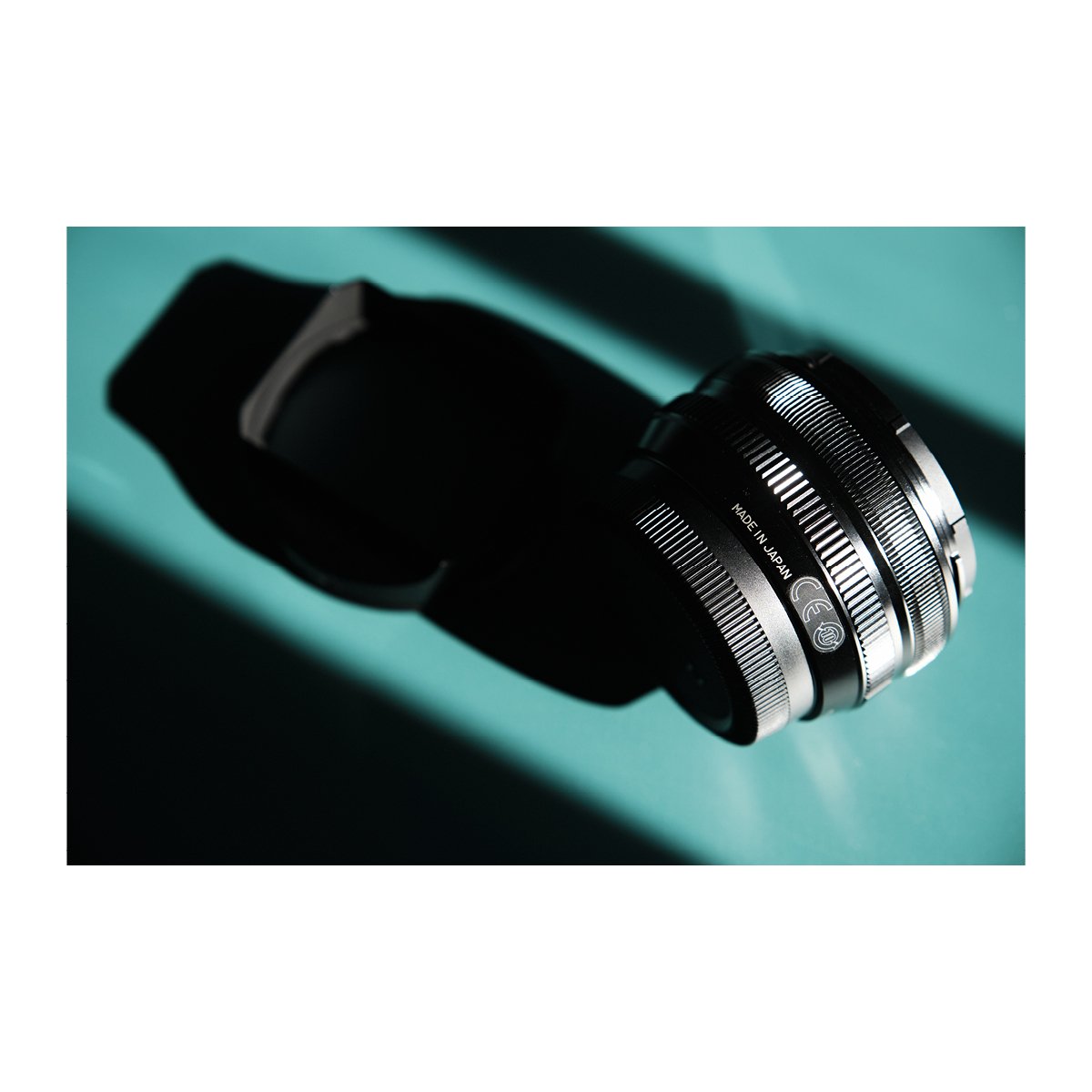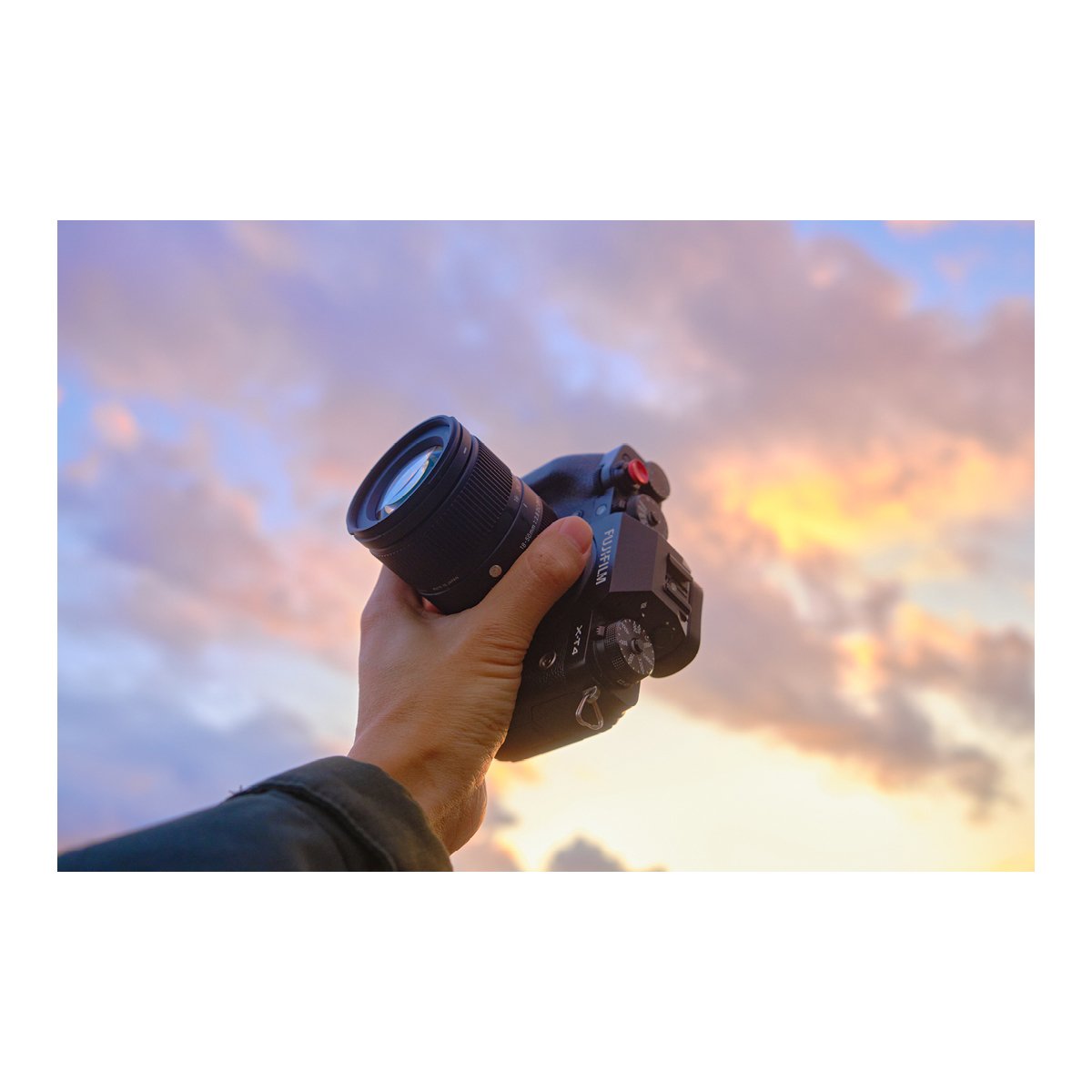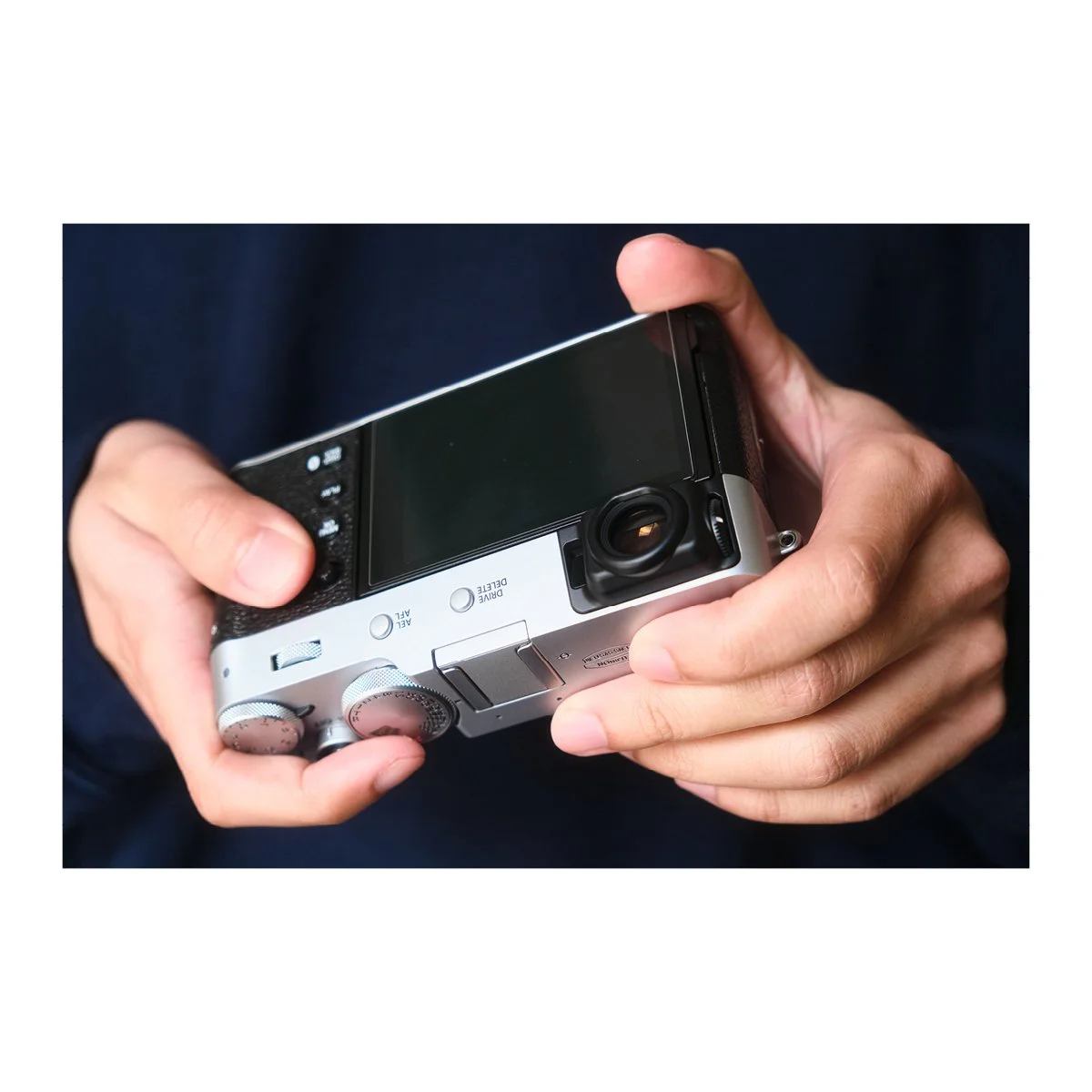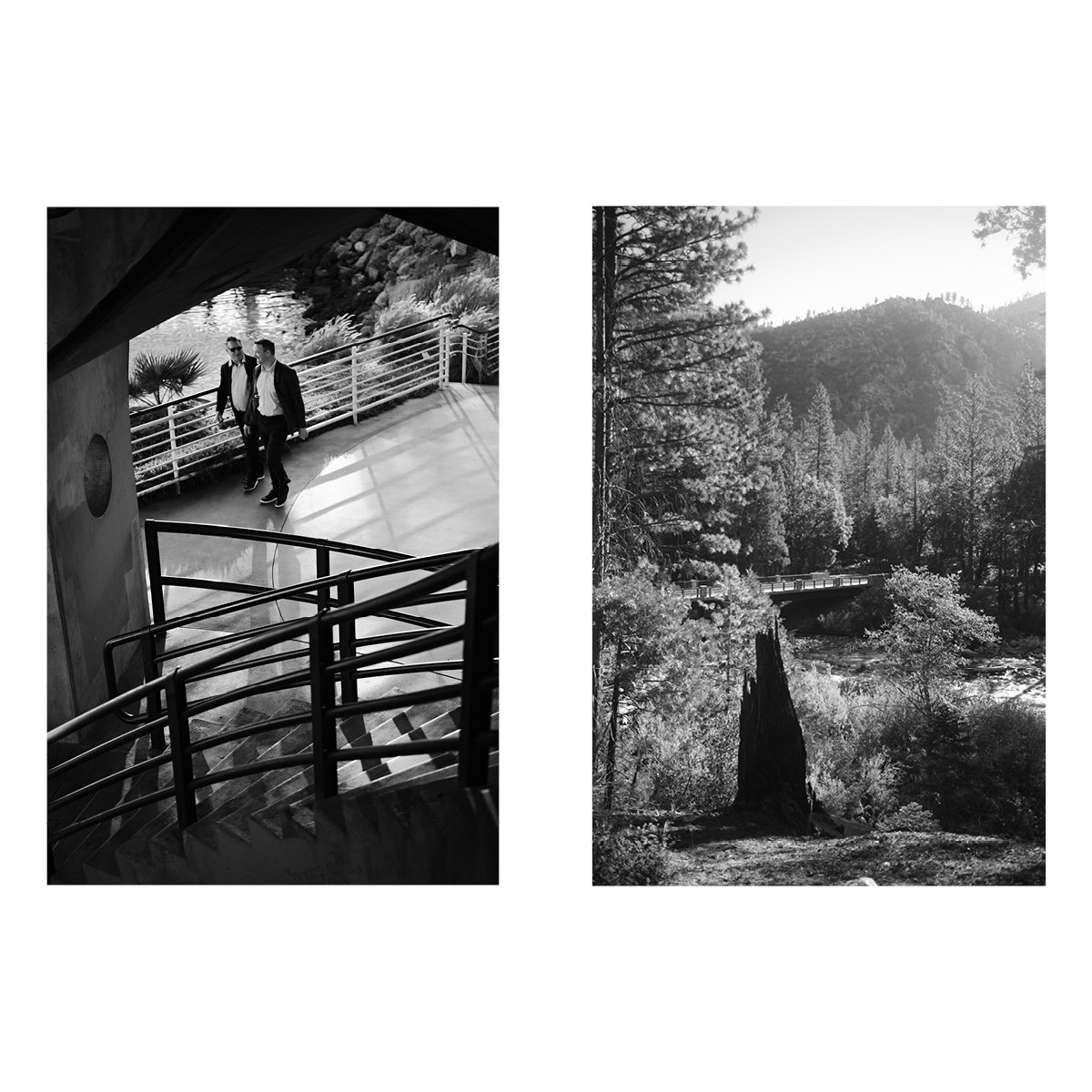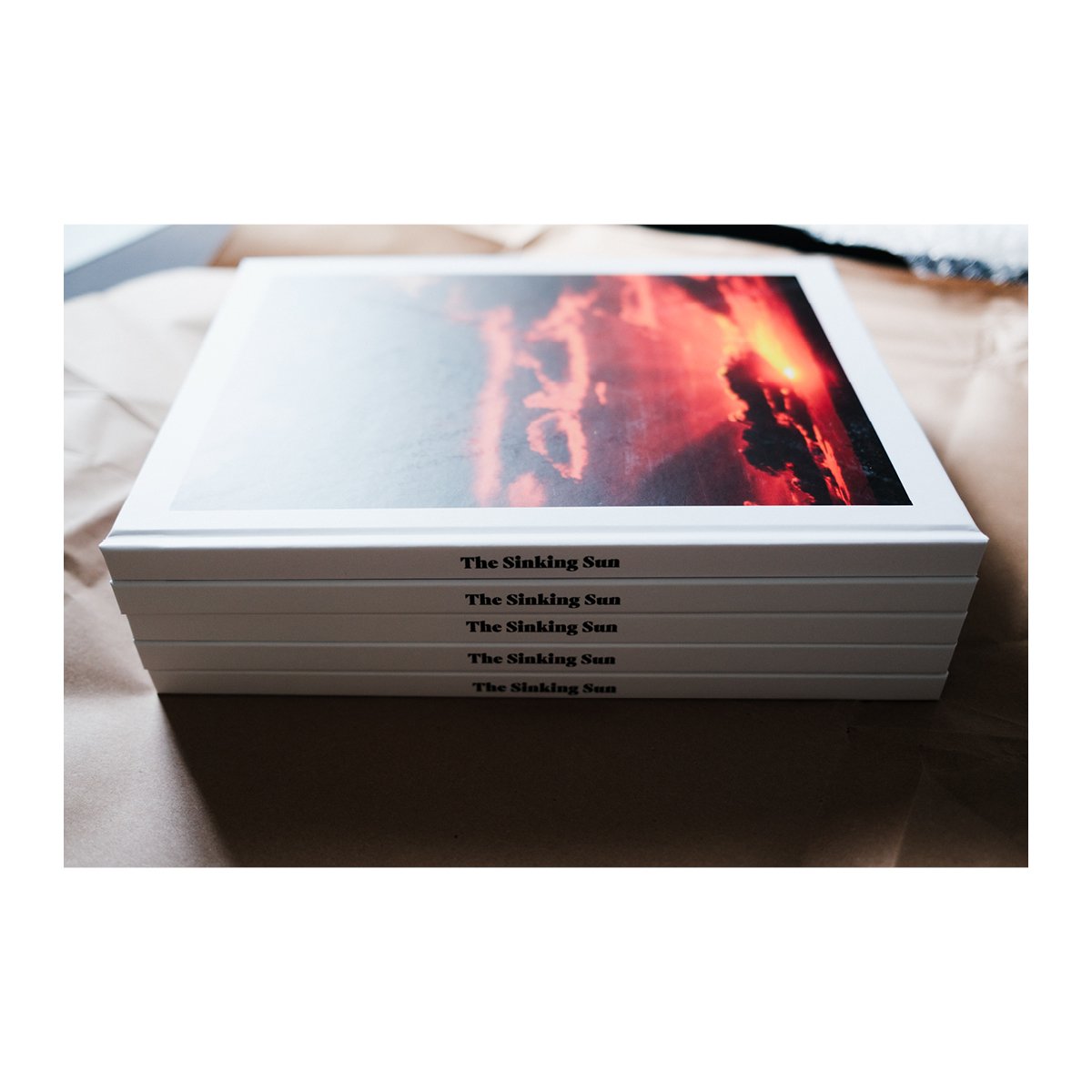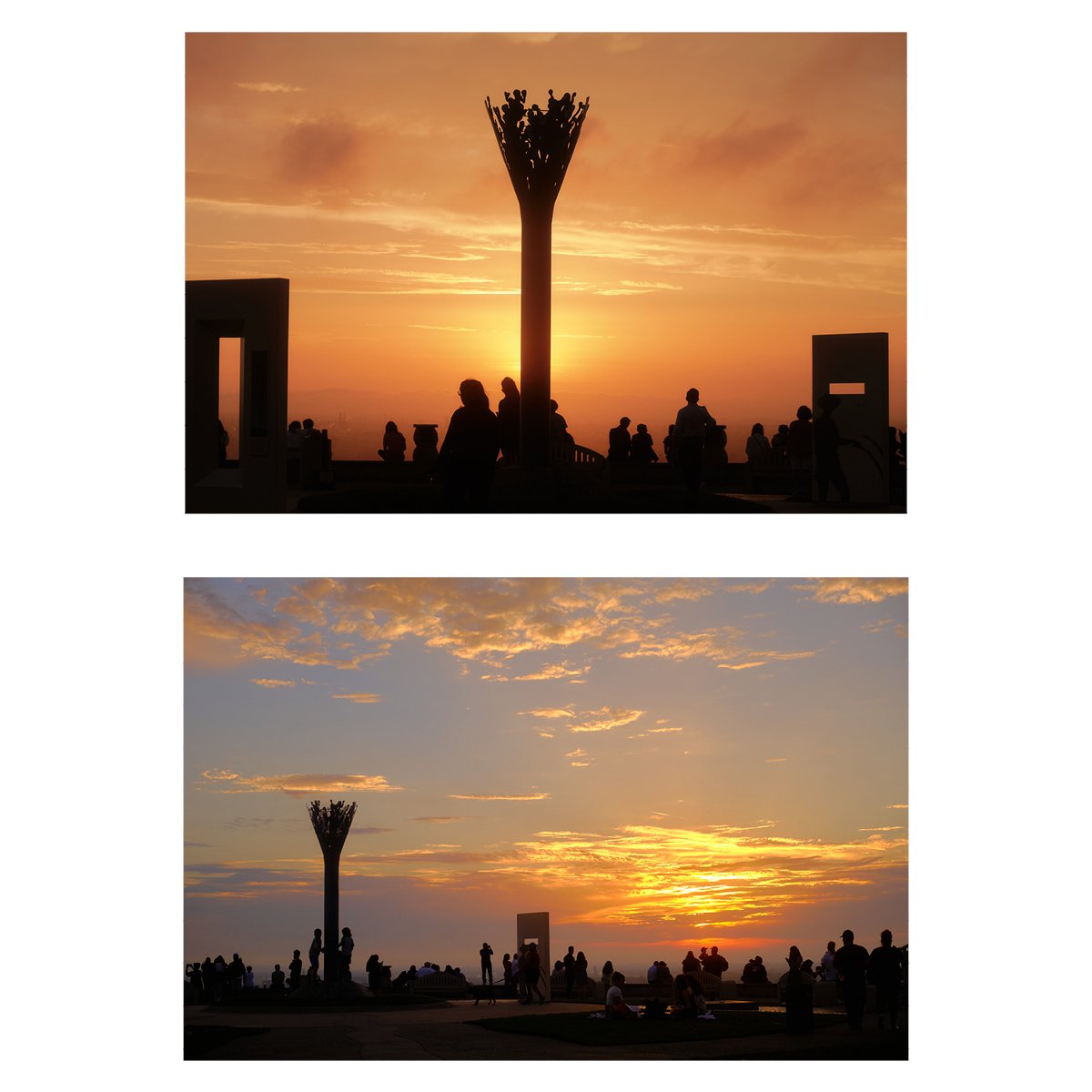If I Could Go Back and Relearn Photography, Here’s What I’d Do
If I could go back and relearn photography, given what I know now, this is how I’d approach it.
You see, when we’re a beginner in anything, it’s difficult to have the foresight to avoid failures and make things easier.
That’s normal - because failure is normal and it’s impossible to know everything, especially if you’re a beginner.
The problem is, there is still a bunch of pain and failure that could have been avoided or at least minimized if we just thought about it a bit more.
So this is not an article I’m writing out of regret - rather I think many steps along my photography journey have worked out quite well.
But I’d like to share some things that would have saved me a lot of pain, so you don’t have to go through it.
And you don’t need to be a beginner to benefit from this - much of this stuff is still advice I try to apply today.
Lets get started.
Start With the Essentials
If we want to learn photography the better way, we need to start with the essentials.
You can think of these like your basics.
Because in the world of photography, there’s a lot of things to think about.
There’s cameras, lenses, compositions, frameworks, and even your own psychology.
And when your head is filled with all of that, we can get confused and paralyzed real easy.
So the essentials, by definition, are all we need.
By focusing on these few things, we can cover the majority of photography and not worry about all the other stuff.
And that, will naturally make our lives simpler and more straightforward.
Which will result in a less stressful and more streamlined process of getting into photography.
Make sense?
So what are the essentials of photography?
Out of my many years of shooting and trying things out I’ve found there to be 3 main essentials to my photography.
Exposure, composition, and editing.
If I had to boil everything down into just 3 things, that would be it.
Those are the most important and they’re the small 20% that contribute to 80% of what we do.
You may have personal differences and opinions on what you’d consider an “essential”, and that’s okay. These are just mine.
So, a brief overview.
By exposure, I’m referring to your exposure triangle: aperture, iso, and shutter speed.
Learning, understanding, applying, and mastering those concepts not only in your head but in the field.
Composition I’ve boiled down into perspective, light, and framing (or the Rule of Thirds).
And editing is about understanding how to work with the tones and colors of your images, making them synergistic, and not overdoing it.
These are my photography essentials and, don’t be overwhelmed.
You could spend years and years just practicing, working on, and understanding those concepts.
But if I were to start photography again, I’d focus on those 3 things because they simply make up the majority of what I do now anyways.
If you want to learn more in detail about the “Photography Essentials”, I just finished building a course on it.
It’s a 11 part video course that breaks down these different essentials of photography.
Plus there’s photo assignments and practical tips in there to help you understand the concepts both mentally and through experience.
And, it’s free.
So go check it out, it wont cost you a penny.
Stick to a Simple Setup
Thinking back on it, much of my time, especially in the early days of photography, was wasted thinking about gear.
Everything was new and interesting and I wanted to try all sorts of different lenses, cameras, and combinations.
And I think a little bit of that is okay.
It’s fun to experiment and try new things especially with the equipment we use.
But too much of that and it can get out of hand real fast.
We’ll start thinking and thinking about the best gear for each situation.
And we might worry about going on a trip and taking photos without the optimal setup.
And then you buy gear, sell gear, buy gear, and sell gear.
This back and forth deliberation between what gear we use and what gear we think we need can be stressful and tiring.
And it can take our attention and focus away from what we should be thinking about: taking photos and having a good time.
All of this could be avoided by sticking to a simple setup.
Because having less options means you literally don’t have a choice.
It’s just grab and go and take pictures.
And that simplification, every day, every trip, adds up in the long run.
So how do we build a simple setup?
In my opinion, most people only need 1 body, 1 zoom, and 1 prime.
Just those three alone can cover 80% of your photography.
And more niche and specific focal lengths and camera bodies are situational and for fun.
Obviously there are exceptions to this.
Maybe you’re a landscape photographer and like to carry 3 lenses and two bodies on multi day backpacking trips or whatever.
Or you’re a wedding photographer and having an extra camera body is easier than switching lenses.
But the point is, figure out what works for you, be honest about the gear you don’t use, and keep downsizing.
Because less is more.
Street photographers, you can definitely get away with one body one lens.
It just hurts to leave something we think we might need at home.
But this is a useful skill to build.
Because the better we get at this, the less time we spend worrying about gear, and the more better photos we’ll take.
Create Your Own Assignments
A big benefit about photography is that it’s open ended.
It’s a form of art, meaning there’s no right or wrong way to do things - it all depends on what you’re trying to do.
And there are an infinite amount of variants in-between: street, landscape, journalism, wedding, portrait, etc.
This gives us the freedom to try a bunch of things, experiment, and be creative.
It comes, however, with one big caveat.
That is: because there are no rules or right ways to do things, how are we supposed to know what to do?
We have the freedom to do whatever we want, yet we are paralyzed by not knowing what to do.
Ironic, I know.
It’s very analagous to life in that aspect - everyone’s path is different and there are no right answers.
Meaning advice you’d get from me, other creators, or great photographers of the past may help, but may also not necessarily apply to your photography.
Because there is no one size fits all, and your path is unique.
So what do we do?
Well, if there isn’t a path laid down in front of us, we have to create it for ourselves.
This is where creating our own photography assignments comes in.
We must be the ones to create our own homework of what we want to learn, what we want to do, and what we want to improve.
This could be a week of just focusing on aperture, ISO, or shutter speed.
Playing with different settings, environments, and subject matter.
Make up what you’re going to practice on and shoot with intention.
And learn to work with the day because not every day is going to give you the opportunities and conditions you’re looking for.
Build these assignments with the goal in mind of taking our photography to where we want it to go.
For a landscape photographer this could be a backpacking trip to the mountains.
Or a week in New York for some street photographers.
Or even just hangouts with friends if you’re just a casual hobbyist who wants to document your life.
You’ve gotta setup tasks for yourself in such a way that will force you to rise to the challenge and improve to become the artist you want to become.
If you can learn to create your own assignments, you’ll no longer feel lost in your art, and you’ll improve quite rapidly.
Because now you know what you have to do and there’s no excuse to not do it.
Plus, you’ll compare yourself less to other photographers or artists because you know your path is different from theirs.
Make sense?
Learn to Observe
Observation is a key skill in photography.
Actually, it might be the key skill.
There are many different facets to observation, but we’ll just cover one for now.
Learn to observe.
What do I mean by that?
I mean: learn to pay attention to the world around you.
Learn to recognize and understand what’s happening.
Learn to see and recognize opportunities.
And learn to empathize.
That last one is the final boss of observation.
You see, many photographers understand the idea of observation as seeing what’s happening, or “looking” and training your eye.
But many photographers don’t understand that the next level of observation is empathy.
It’s being able to see into the depths of another person, understanding what they’re feeling in that moment, and being able to capture it within a picture.
That’s the level we want to aim for.
Because if we’re able to understand what a person’s feeling within an instant, relate it to the time of day and what’s happening around us, and bottle that into a single frame, that’s a good picture.
And that’s what I’d tell my past self to learn as soon as possible.
Because this skill is difficult, it’s challenging, and it takes a long time to get good at.
So I might as well start the cycle as soon as possible, right?
Now understand this.
I still struggle to do this well - most of my photos are not this.
And you yourself might have your hands full with just the settings and framing of your camera.
If you are, don’t worry about this too deeply, it might overwhelm you.
Instead, just keep observation in mind, and do it if you can:
seeing what’s around you
recognizing what’s happening
taking advantage of opportunities
empathy - feeling the emotions of others or the collective emotion of the day and translating that into a picture
It may be hard at first but if you can do it, your golden.
Make a Project As Soon As Possible
The final thing I’d do if I could relearn photography is to make a project as soon as possible.
I’ve made several different books, zines, etc throughout my photography journey - most of them experimental.
And my first real serious public publication was “The Sinking Sun”.
Through this process of creating and making photography projects, I learned something invaluable.
I learned you don’t need to be good to make a photobook.
I learned you can improve your photography simply by making a photobook.
And I learned that it’s better to start sooner than later, to get that cycle going.
Because the longer you wait, the harder it gets.
You may become scared to create or pursue something more challenging because you’ll always feel like you’re “not ready”.
But you’re as ready as you’ll ever be - so just get started.
Similarly, when you build and create projects, regardless of how good you are, you’ll have something tangible that reflects who you are at the time.
Even now, I sometimes flip through the old stuff I made and remember, “Oh yeah, that’s what I was thinking about.”
And some stuff I’m happy with, other stuff could be improved, but I like each one all the same because I know that given my skill level and mind at the time, that was more or less the best I could do.
Finally, building photography projects forces you to think about photography as more than just the snapshots you take.
It adds to your photos a higher purpose and then you can start connecting the dots between different photos, different days, and build upon certain themes.
This, I believe, is the true fun and challenge of photography.
To not only take pictures and things that you like but to actually use your photos to express something greater.
It could simply be a documentary about a time, a trip, an experience.
Or you could use your photos to explore areas of life and philosophy that interest you - kind of like I did with The Sinking Sun.
The point is, the next level of photography lies within not the photos you take, but how you use them.
Maybe we’ll explore this more in a future article.
So lets bring this all together.
If I could go back and relearn photography the better way, here’s what I’d do.
I’d start with the essentials.
These are our basics of photography: exposure, composition, and photo editing.
I’d spend copious amounts of time focused on dialing in these basics because I know most of the other stuff is noise, not signal.
You can get up to speed with these in my free course “Photography Essentials”.
I’d stick with a simple setup.
Instead of running around buying every lens that catches my eye, I’d resist the urge and stick to 1 body, 1 zoom, and 1 prime.
This will give me less options and allow me to focus on photography instead of stressing out over the best lens to use.
I’d create my own photography assignments.
Since photography is quite open ended and there are many directions we can go in, creating your own path is something you have to do for yourself.
This means analyzing your strengths and weaknesses, giving yourself quests, and completing them in an effort to go where you wanna go.
Doing this will give you more clarity along your journey and it’ll just make things more fun.
I’d learn to observe.
Observation is the key skill of photography and by learning to recognize my surroundings and the opportunities around me, I can more likely get better photos.
Plus, learning to empathize and feel what my subject is feeling can better allow me to capture a moment that corresponds with the emotions of the time and simply makes more sense.
I’d start making photography projects as soon as possible.
Whether it’s a little zine about color or plants or whatever, creating projects around your photography is a great way to improve your photography.
Because if there’s anything I realized in my years of shooting, it’s that photography is not simply about the photos you take, but how you use them.
And if I learn to use my photos in a compelling way that connects me and the viewer, I’ve done a good job.
So I’d start learning how to do that as soon as possible.
So those were the 5 things I’d focus on if I could relearn photography.
It’s a lot, I know.
And if it sounds overwhelming, just focus on what seems manageable for now.
Because learning, applying, and mastering these things can take a lifetime - I’m still working on them myself.
But I hope you enjoyed this and found it helpful.
Check out “Photography Essentials” if you want to learn more about photography (it’s free).
And if you’re interested, check out “The Sinking Sun” my latest photography zine, you can get a free 4x6 print while you’re at it.
Thank you for reading, have a great day!

